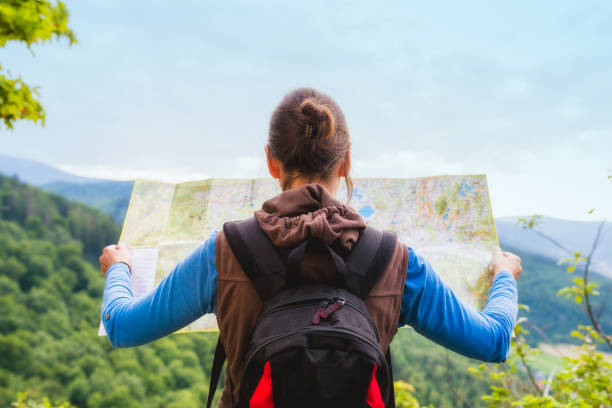If you’ve ever explored a new destination and felt inspired by the stories and insights of a knowledgeable guide, you may have wondered how to become a travel guide yourself. Becoming a travel guide is a fulfilling career for those with a passion for travel, culture, and sharing their knowledge with others. Whether you’re considering leading groups through ancient cities or guiding adventurous trekkers through remote landscapes, learning how to become a travel guide involves a combination of practical skills, certifications, and a deep understanding of the places you’ll introduce others to. In this guide, we’ll walk through the key steps to help you embark on this exciting career path.
Table of Contents
Understanding the Role of a Travel Guide
Before diving into the specifics of how to become a travel guide, it’s essential to understand what the job entails. A travel guide is more than just a person who leads a group through a destination; they are educators, storytellers, and problem-solvers who provide insight into the history, culture, and landmarks of the places they visit. A travel guide’s role also includes ensuring the safety of their group, managing logistics, and adapting to the needs of their travelers. Whether you’re leading a cultural tour through Europe or an eco-tour in the Amazon, the ability to engage and educate your audience while keeping them entertained and safe is at the heart of the job.
Step 1: Gain In-Depth Knowledge of Destinations
One of the first steps in how to become a travel guide is to develop an in-depth knowledge of the destinations you plan to cover. This means not only knowing the major landmarks but also understanding the local culture, traditions, geography, and history. For instance, if you plan to guide tours in Italy, you should learn about Roman history, the art scene in Florence, and the culinary traditions of different regions. Travelers seek guides who can offer more than just surface-level information—they want insights that enhance their experience and make their trip memorable.
This knowledge can be gained through personal travel, research, and engaging with local experts. Reading books, attending cultural events, and even interacting with the locals will give you the firsthand experience necessary to be an effective guide.

Step 2: Obtain Relevant Certifications and Training
While passion and knowledge are key, how to become a travel guide often requires formal training and certification. Different countries and regions have specific requirements for becoming a licensed travel guide. For example, in some countries, you may need to complete a specific course in travel guiding or tourism management. Some places require guides to pass an exam to demonstrate their knowledge of local landmarks and cultural norms.
In addition to destination-specific certification, many travel guides also choose to pursue general tourism certifications that can improve their job prospects. These programs often cover communication skills, first aid, group management, and other essential skills for guiding tours. For instance, the World Federation of Tourist Guide Associations (WFTGA) offers international certification programs that are recognized worldwide.
Step 3: Develop Strong Communication and Interpersonal Skills
One of the most important qualities of a successful travel guide is the ability to communicate effectively with diverse groups of people. Whether you are guiding a large group of tourists or working with small, intimate groups, your ability to connect with people from various backgrounds will significantly impact your success. Strong interpersonal skills are key in this line of work, as travel guides need to be personable, patient, and able to handle various situations with ease.
Effective storytelling is also a critical skill. Travelers want to hear more than just facts—they want to be engaged with anecdotes, historical context, and local legends. The best travel guides can weave a narrative that brings destinations to life, making even the most well-known landmarks feel fresh and exciting. Developing these skills through practice, public speaking courses, or theater can help you excel as a guide.

Step 4: Gain Practical Experience
Like any other career, practical experience is essential when learning how to become a travel guide. Start by working as an assistant guide or volunteering for local tours to get a feel for the job. Many aspiring travel guides find that gaining hands-on experience allows them to hone their skills and understand the nuances of guiding. This experience will also help you build confidence and improve your ability to manage groups, handle logistics, and adapt to unexpected challenges.
Working with a variety of groups will help you understand different travel styles and preferences. For example, you may guide a family on a cultural tour one day and lead a group of adventure travelers the next. Being able to tailor your approach to meet the needs of different types of tourists is a crucial skill for any guide.
Step 5: Find a Job or Start Your Own Tour Business
Once you’ve acquired the necessary knowledge, training, and experience, the next step in how to become a travel guide is to find employment with a tour operator or start your own business. Many travel guides work for established tour companies that organize guided tours to popular destinations. This can be a great way to gain more experience and expand your network within the travel industry. However, if you have a strong entrepreneurial spirit, you might consider starting your own tour company. This would involve creating unique itineraries, building relationships with local vendors, and marketing your services to attract clients.
In either case, building a reputation as a knowledgeable, engaging, and reliable travel guide will be key to your long-term success. Word of mouth and online reviews play a huge role in this industry, so consistently delivering a high-quality experience for your travelers is essential.

Conclusion
Learning how to become a travel guide is a rewarding journey in itself. It requires dedication, passion, and a love for sharing the world with others. By gaining deep knowledge of your chosen destinations, obtaining the necessary certifications, honing your communication skills, and gaining practical experience, you can embark on a career that offers exciting opportunities and personal fulfillment. Whether you’re guiding travelers through historic cities, remote natural wonders, or thrilling adventure tours, becoming a travel guide allows you to turn your passion for exploration into a career that changes lives—yours and your travelers’.
